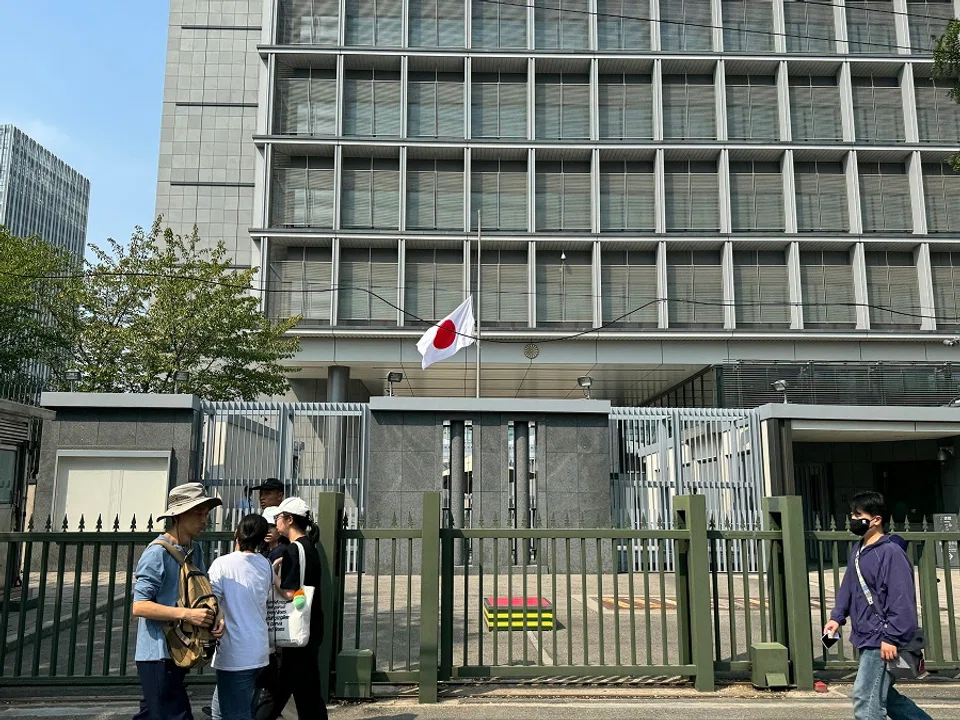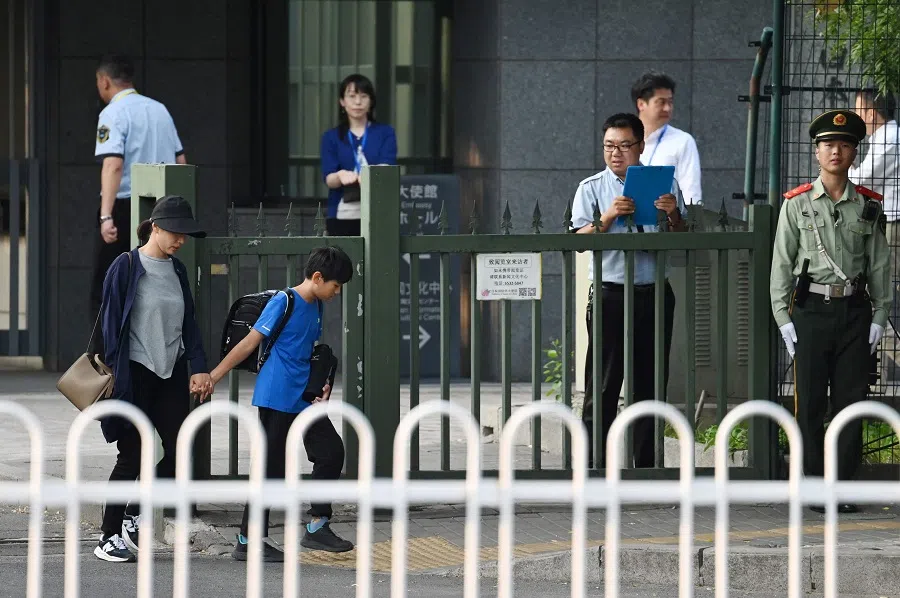Japanese academic: Stabbing in Shenzhen and Japan-China relations
The fatal stabbing of a Japanese schoolboy in China has sparked a wave of mutual suspicion and ill-feeling between Japanese and Chinese, says Japanese academic Shin Kawashima. This is not helped by the lack of transparency from China on the investigations into the case, and its anti-espionage laws that have led to several Japanese businessmen being detained.

On 18 September 2024, a Japanese child was killed in front of a Japanese school in Shenzhen, China. Just a few months earlier, on 24 June, a Japanese woman and her child were wounded in a stabbing attack while waiting for a bus used by a Japanese school in Suzhou, and a Chinese woman on the bus who attempted to protect them died.
As a result, Japanese living in China are increasingly expressing concern that they may be attacked, and there are also suspicions that the Chinese side is not disclosing information about the circumstances of the incident and the investigations.
Some Japanese companies are allowing the families of employees stationed in China to return home. However, the Japanese government has expressed concern that such incidents will escalate public sentiment against China in Japan, and it is apparent that it is trying to patiently communicate with the Chinese side. However, while the Japanese foreign minister spoke with Chinese Foreign Minister Wang Yi in New York, and the Japanese Vice-Foreign Minister visited China regarding these incidents, there have been no details from the Chinese side.
There is also a suspicion that in China, with the overall economy in a slump, including sluggish real estate prices, many people are becoming desperate after becoming unemployed or bankrupt.
Lack of clear information from the Chinese side
Moreover, there seems to be an information blockade on the latest incident within China, and it remains unclear what the facts are. A letter purportedly written by the victim’s father has been circulated in Chinese media, but major Japanese media have been careful about its veracity and have not reported widely on it.

Recently, there have been a number of cases in which Japanese businessmen have been detained under China’s anti-espionage laws, but because not enough information is released, it is unclear why they were detained, which hinders economic exchanges. This year, Chinese local government leaders have been visiting Japan in droves to solicit investment, but Japanese companies have been slow to respond, in part because of China’s emphasis on national security and the tightening of its anti-espionage laws.
... is it because China has tightened its anti-espionage laws due to national security concerns, and insists that there are many spies among foreigners, which has led the Chinese public keeping a closer eye on foreigners?
National security-related concerns?
On another note, all of Japan is interested in what led to the incidents in Suzhou and Shenzhen, such as whether they are a structural product of China’s political society or whether they were purely due to personal circumstances. There is also a suspicion that in China, with the overall economy in a slump, including sluggish real estate prices, many people are becoming desperate after becoming unemployed or bankrupt.
Or, is it because China has tightened its anti-espionage laws due to national security concerns, and insists that there are many spies among foreigners, which has led the Chinese public keeping a closer eye on foreigners? If so, it is easy to imagine that resentment against foreigners will intensify.

There have also been a number of incidents of Japanese people being attacked on the streets in China. Of course, it is not just Japanese people who have been attacked in China this year. Due to historical and territorial issues, Chinese society takes a tough view of Japan and the Japanese people.
The Shenzhen stabbing happened on 18 September, the anniversary of the Mukden incident in China. The circumstances of the incident and the suspect’s motives are completely unknown, so it is currently unclear whether the incident is due to a structural problem or an isolated case. However, given the piecemeal information that has been disseminated, it will be difficult to dispel Japanese suspicions about China.
Since the incident happened in China, perhaps it has to be handled in line with China’s rules; but doing so will only leave the other country in great doubt. In that sense, “diplomatic” measures are also necessary.
China has its own set of rules, and domestic governance is based on those rules. It is common knowledge within the country that information disclosure is restricted, and control of speech in the media and online is normal.
However, once there is an incident relating to a foreign country, sometimes the knowledge within China does not work. Since the incident happened in China, perhaps it has to be handled in line with China’s rules; but doing so will only leave the other country in great doubt. In that sense, “diplomatic” measures are also necessary.
In addressing incidents involving foreigners, perhaps China needs to resolve them through diplomatic channels.





